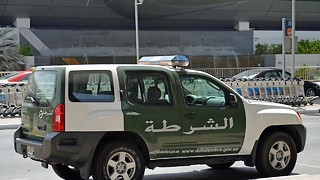Durkheim on Music Festivals and Religion
Ayaz Manji talks about how Karl Barat could be our new Messiah
'They say Aslan is on the move – perhaps he has already landed.’ Maybe I can’t speak for everyone but a pretty significant chunk of my childhood’s wrapped up in that short line. Never mind the thinly veiled Christian allegory, C.S Lewis had this amazing, insurmountable ability to draw us into a world that always seemed far more alive than ours would ever be: Edmund’s descent into Turkish delight-induced gluttony gives way to Aslan’s sacrifice on the stone table, the compassion of the mice who chew at the cords that bind him and later the redemption and rebirth that comes with the first signs of spring.
What The Chronicles of Narnia did so brilliantly was to translate the intensity of religious narrative into a universal language. You didn’t have to be Christian to appreciate it. Nor, contrary to what Lewis might have believed, was the story he was telling a uniquely Christian one. It is just a story about the hope for redemption; a hope that the eternal winter will end and a hope that things that are now wrong will one day be made right. That’s something that has always manifested itself throughout human history. In the past we called it religion. Maybe we don’t now. But that doesn’t mean it’s not still there, and we’re forever finding new ways to practice it.
Where do music festivals come into it? They’re maybe the most recent strand of that same story. When rumours started circulating the Internet that the Libertines might be playing a festival in my hometown, the news seemed to come with that familiar sense of hopeful excitement. Our favourite bands take the place of that Messianic figure, bringing together people from all walks of life, stripping down layers of cynicism and allowing us to enjoy being one drop in a euphoric ocean of people. It’s an experience that’s unifying, hopeful and hard to shake off. It’s an experience that is, at its core, religious.
Durkheim was a sociologist who saw religion in terms of its function within society. For him religion has to bring discipline, it has to vitalise us, has to bring a sense of euphoria and it has to bring us together. We’re a generation that has been in part alienated by the doctrines of churches grounded in the past. Music and festivals are how we’ve replaced them. We make pilgrimages across the country and across the world. We cast off luxury and live in muddy tents. We have our mythology, the things we hold sacred, our Woodstock and our Glastonbury. We even have our own moneychangers in the temple; those corporate sponsors who are both the reason why festivals can happen and a symbol of the kind of society that festivals try to provide an escape from.
It’s important that this comparison isn’t intended to trivialise organised religion or to aggrandise music festivals. It’s about opening ourselves up to new ways of looking at what exactly religion is, and more importantly, what it does. People have got too used to religion as some kind of pseudo-science. People see it just as a network of claims or beliefs about the world. But it’s not. Religion is an expression of something fundamentally human. It’s the stories that we tell each other and the things that we do together to mark what’s sacred: Music, loving one another, taking the time to sit and eat and drink with each other and not defining ourselves by what we have or how we look. Marx famously described religion as an opiate and maybe that’s an accurate way to describe the atmosphere that music creates. But he also called it the heart of a heartless world and that’s every bit as important.
 News / Newnham postgrads referred to homeless charities as College runs out of rooms31 July 2025
News / Newnham postgrads referred to homeless charities as College runs out of rooms31 July 2025 Arts / William Morris’ little-known labours in Cambridge25 July 2025
Arts / William Morris’ little-known labours in Cambridge25 July 2025 Lifestyle / Break-ups in the bubble31 July 2025
Lifestyle / Break-ups in the bubble31 July 2025 News / Lucy Cav secures £47m loan to expand student accommodation30 July 2025
News / Lucy Cav secures £47m loan to expand student accommodation30 July 2025 Theatre / One year, many stages: the fresher actors behind Cambridge theatre31 July 2025
Theatre / One year, many stages: the fresher actors behind Cambridge theatre31 July 2025








